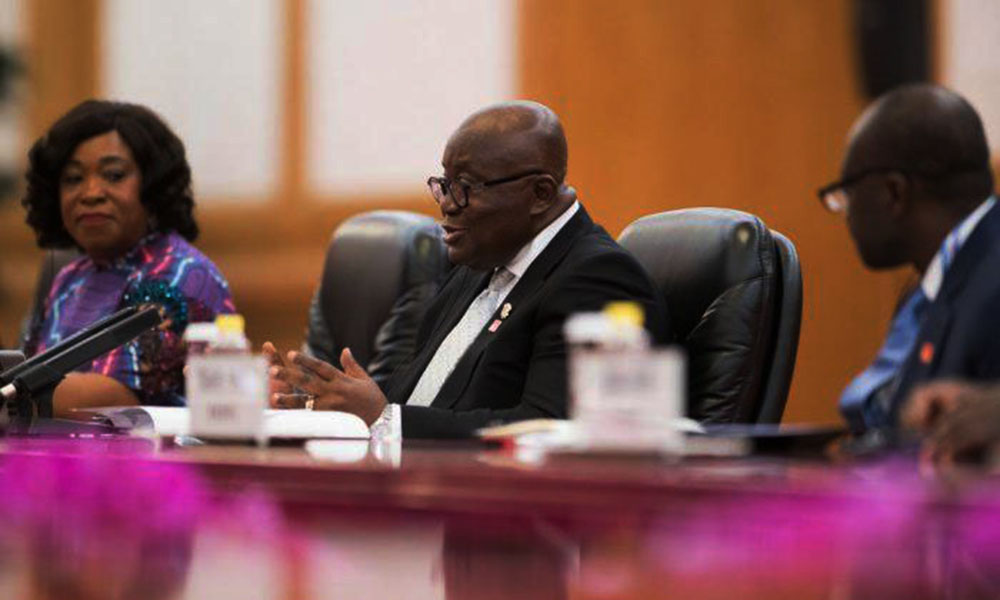What, reportedly, is an agreed US$10 billion dollar payback to Ghana by the People’s Republic of China for Bejing’s rights to mine bauxite in the country’s 200-odd square kilometer environmentally important Atewa Range Forest Reserve, continues to encounter fierce pushback from a swathe of international environmentalists and pockets of ordinary Ghanaians notwithstanding evidence that the project appears to have the backing of the government of the country’s Head of State, Nana Akufo-Addo.
Atewa, which has been described by international environmentalists as a “world class” environmental reserve is said to be “home to rare flora and fauna including two butterfly species not found anywhere else in the world and a rediscovered West African monkey classified as ‘endangered’ on the IUCN Red List of Threatened Species.”
From the standpoint of the lives and livelihoods of millions of Ghanaians, the reserve also reportedly serves as the source of three of Ghana’s major rivers which serve several millions of people including sections of the population in the country’s capital, Accra.
What has been a robust lobby to push back the China deal out of fear that the bauxite mining pursuit could trigger an irreversible environmental disaster appears to have done little up until now to dim official enthusiasm for the project.
China’s sustained push to continue to build its relentless industrialization ambitions has made the acquisition of bauxite a key objective, its role in the manufacture of commodities ranging from aircraft to cement not lost to a country with undiminished First World ambitions. From the perspective of the millions of Ghanaians who have reportedly mounted stiff resistance to what they see as a potential environmental disaster, the engagement between Accra and Beijing on the Atewa Forest Reserve Project, could mark a critical juncture in a wider rollercoaster ride that compromises the country’s broader environmental credentials.
The deal reportedly requires Ghana to allow China access to 5% of the country’s bauxite in exchange for which China will compensate Ghana with various infrastructure projects including the expansion of the country’s railway network and the building of a network of new roads and bridges in the country. Ghana’s total untapped bauxite reserves are estimated to be worth some US$460 billion.
Under Ghana’s president, Nana Akufo-Addo, Ghana is said to be seeking to realise the goal of creating “A Country Beyond Aid,” though critics of that perspective have voiced concern over Ghana becoming a ‘victim’ of what they regard as a China ‘debt trap’ into which other African countries including Angola and Guinea have fallen.
Environmental groups in Ghana have criticised the Ghanaian government for neglecting, over time, to upgrade the highly valued Atewa Forest Reserve to a National Park, a circumstance that would have served to enhance the level of its environmental protection, thereby insulating the Park from various attempts that have previously been made at logging and gold mining.
These days, the campaign is reportedly focussed on pushing back what has become a much more imminent arrangement to mine bauxite given the deal signed with China.
Ghana had, for many years, been one of the world’s leading exporters of timber though the shrinking of the country’s forest following years of relentless timber extraction have reportedly led to the country’s timber processors seeking alternatives through which to acquire timber, South America being one of those.
An estimated 80% of Ghana’s forest resources under state management have reportedly been lost to illegal activities over the past three decades and recently the country’s Forestry Commission added its voice to calls for the cessation of plans for mining in the Atewa Forest with a warning that efforts to sate the Chinese appetite for bauxite could come at a price of depriving the people in the affected communities of water.
Whether or not the Ghanaian government is listening, however, is far from clear.





